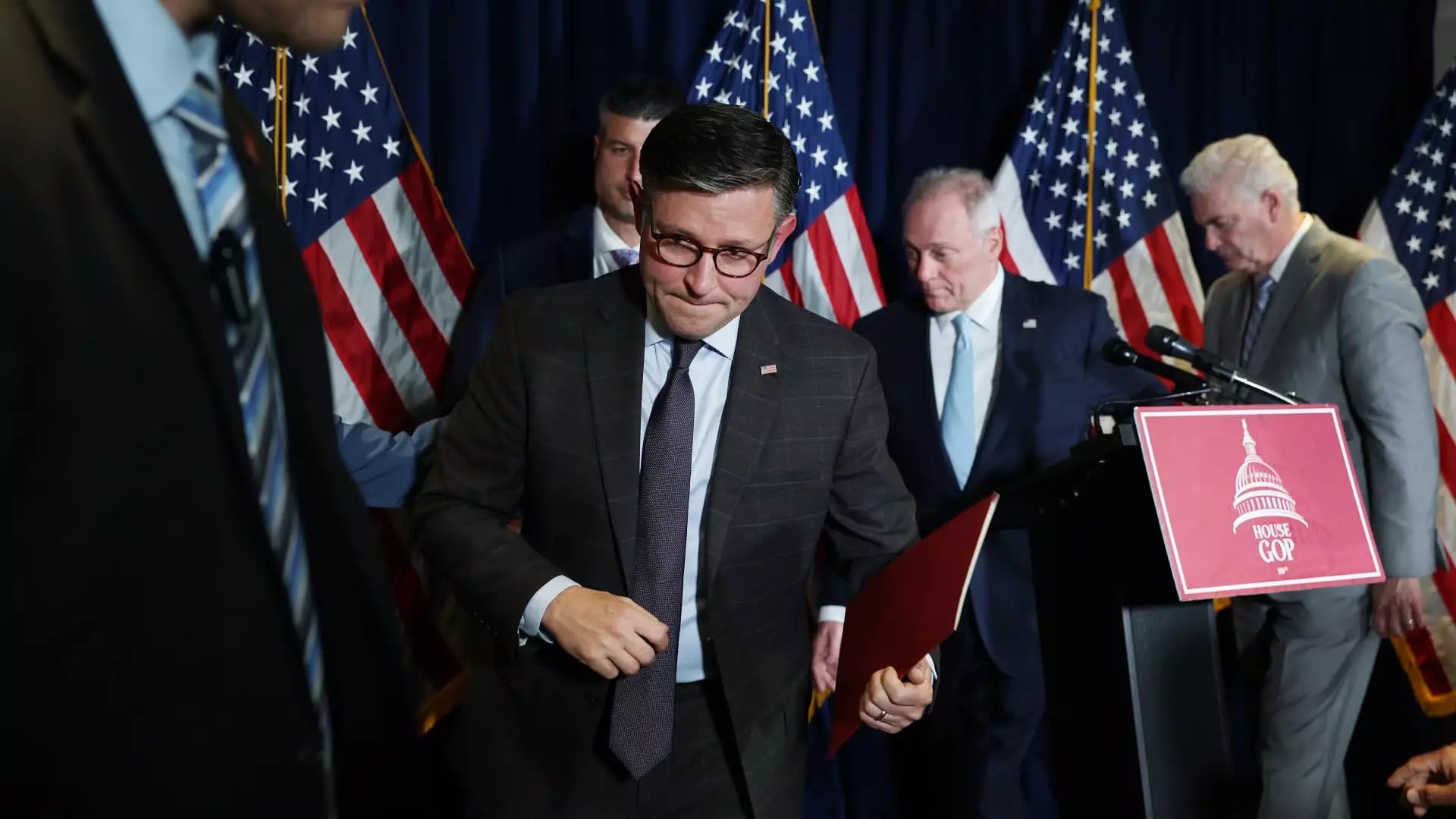In an increasingly polarized political landscape, the continuous brinkmanship surrounding government funding exposes a troubling prioritization of partisan gain over the nation’s stability. House Speaker Mike Johnson’s blunt accusations against Democrats for inserting “partisan political preferences” into critical negotiations illustrate a broader tendency among lawmakers to elevate ideological battles above pragmatic governance. While the desire to leverage budget negotiations to push policy demands is understandable, the consequences of such tactics can be catastrophic, risking government shutdowns that ripple through every facet of American life.
Johnson’s stance underscores a fundamental flaw: a refusal to fundamentally acknowledge when political posturing undermines essential functions. Instead of engaging in honest negotiations to secure funding that sustains government operations, some factions seem more intent on scoring ideological victories. Demanding the extension of Affordable Care Act tax credits amid other pressing funding needs exemplifies this dangerous tug-of-war, with the ultimate victims being ordinary Americans who face skyrocketing healthcare costs and disrupted services. The political calculus that dismisses the immediate urgency of governing in favor of partisan bargaining threatens the fabric of American institutions built on compromise and shared responsibility.
The Risks of Partisan Deadlock on the Economy and Public Welfare
The potential fallout from legislative stalemates extends well beyond political theatre; it poses tangible economic threats. A government shutdown—whether partial or full—can dramatically undermine consumer confidence, slow economic growth, and destabilize job markets. Economists warn that even a brief shutdown can undo months of progress, particularly amid a fragile recovery where the labor market is already showing signs of weakening at rates not seen since 2007, excluding pandemic effects.
Critically, the impact on healthcare affordability cannot be overstated. If Congress fails to extend ACA subsidies, millions of Americans—especially in rural regions—face premiums soaring by up to 90%. This deterioration in access to affordable healthcare exacerbates disparities, leaving vulnerable populations further behind in a system that already struggles with inequity. These policy disagreements are not abstract; they threaten real lives, financial stability, and the broader social contract.
The political timing further complicates matters. Democrats, led by Chuck Schumer, recognize the damaging repercussions of past shutdowns and are wary of repeating mistakes that alienate voters. Their reluctance to pass purely Republican-driven funding bills reflects a desire to avoid a repeat of 2018’s chaos, which effectively eroded public trust. Yet, the Republican insistence on delaying crucial decisions like ACA subsidies—viewing them as unrelated to immediate funding—ignores the interconnectedness of policy issues and the urgent need for bipartisan consensus.
The Stark Illustration of Partisanship Ruling Over Pragmatism
At its core, this standoff reveals a disturbing trend: the politicization of every dollar allocated by the government. Instead of viewing budgeting as a tool to address societal needs, many leaders treat it as a battleground for ideological supremacy. Such an approach fosters instability, with the potential to escalate into prolonged shutdowns that damage the nation’s reputation on the global stage.
The cynical playbook—where blame is strategically assigned to the opposing party—further entrenches dysfunction. Neither side truly seeks resolution but instead aims to frame the other as responsible for chaos, a tactic that ultimately damages democratic legitimacy. With the stakes so high, any delays or refusals to compromise threaten to plunge the country into a costly paralysis, eroding public trust and destabilizing markets.
It is crucial to recognize that governance is about managing competing interests for the collective good. But when partisan power struggles overshadow this fundamental purpose, the entire system becomes compromised. Healthcare access, economic stability, and public confidence hang in the balance, all sacrificed on the altar of political victory.
Under these circumstances, America’s leadership must transcend the petty squabbles and recognize that sustainable governance depends on accountability, empathy, and a willingness to put country over party. Anything less risks a future where political brinkmanship continually endangers the very values America is meant to uphold.

